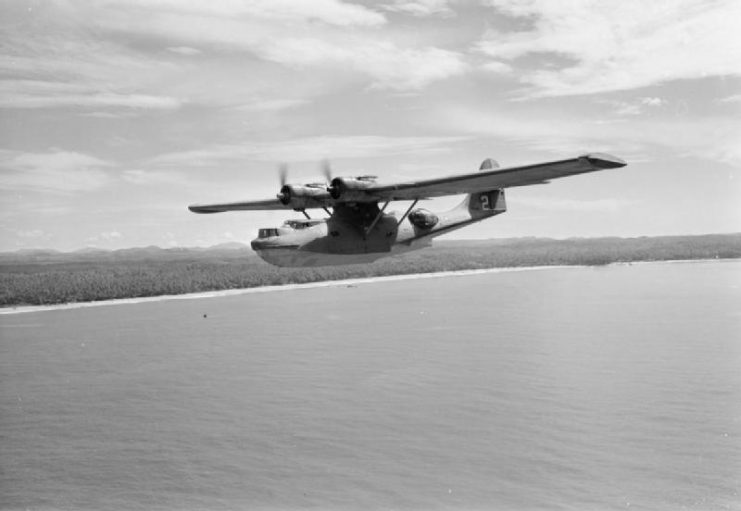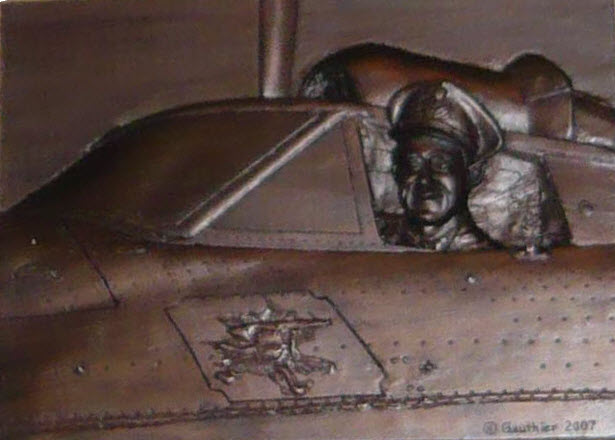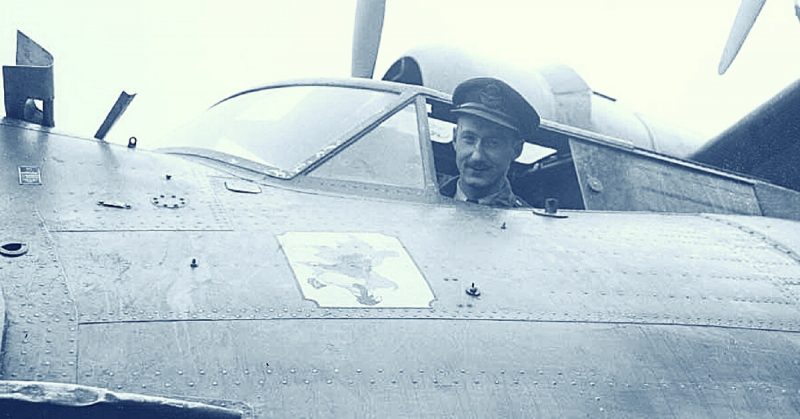Air Commodore Leonard Birchall was a squadron leader of the No 413 Squadron of the Royal Canadian Air Force. It was on April 4, 1942, that his team undertook a reconnaissance mission in the Indian Ocean. It was on this fateful mission that Birchall would earn his nickname as the “Saviour of Ceylon.”
The squadron had arrived in Ceylon (now known as Sri Lanka) only 48 hours earlier. Command had received word that the Japanese were sailing to attack the British base in Ceylon. If they were to succeed in defeating the British, Allied operations in the Indian Ocean would suffer greatly, as would the main supply route to the Mediterranean. This is how Birchall found himself over the Indian Ocean with his squadron.
After eight hours, they had seen nothing, so he turned the squadron around to head back to base. On the way back, he spotted a dot in the ocean and flew his Catalina flying boat to check it out, while he sent the rest of the squadron on back to the base. Recognizing that he had found the Japanese attack fleet, he sent two hastily coded messages to the base to alert them of the approaching danger.
Flying closer to identify the vessels in the fleet, his plane came under attack by Japanese aircraft and was shot down. Six of the crew members survived and were captured. But the messages got through, and the base at Ceylon was able to successfully defend itself against the Japanese attack.

Whilst a prisoner, Birchall organized the other prisoners and led them in protests to demand better treatment from the guards. Whenever Birchall stood up to the guards, he was severely beaten and treated poorly but the other men would receive better treatment.
When Birchall was released, he was awarded the Order of the British Empire for his “concern for the welfare of fellow prisoners with complete disregard for his own safety.” At a formal dinner in Washington in 1947, Winston Churchill declared that Birchall’s courage in helping to foil the Japanese invasion was “one of the most important single contributions to Allied victory”.
Birchall’s flight engineer, Brian Catlin, spent a lot of time with Birchall in POW camps. He says that many men are alive today who would not be if it wasn’t for Birchall’s actions.
President Harry S. Truman made Birchall an officer of the Legion of Merit for his “legendary” exploits on behalf of his fellow prisoners.

Birchall served on the American prosecuting team for the war crimes trials in Japan. Journals he secretly maintained during his time as a prisoner were used as evidence during the trials.
He also worked as a group captain on the Canadian attaché staff and then joined the Canadian NATO delegation in Paris. He commanded an air force base until his promotion to air commodore. He then served as commandant of the Royal Military College at Kingston, Ontario, until he retired in 1967.
In 1994, he acted as a Canadian observer during the general election in Sri Lanka. Whilst there, he noticed the extreme poverty in the hospitals. He again stepped in to help others by arranging to have eight tons of medical supplies sent at his own expense.
He also spent his own money to organize visits to war cemeteries in Sri Lanka and to the 413 Squadron memorial where their base had been. One veteran commented: “Birch is still looking after his men.”
In 1999, Birchall was appointed a Member of the Order of Canada. He became only the second recipient of a fifth clasp to the Canadian Decoration. The first was Queen Elizabeth, the Queen Mother.
Birchall died on September 11, 2004.
